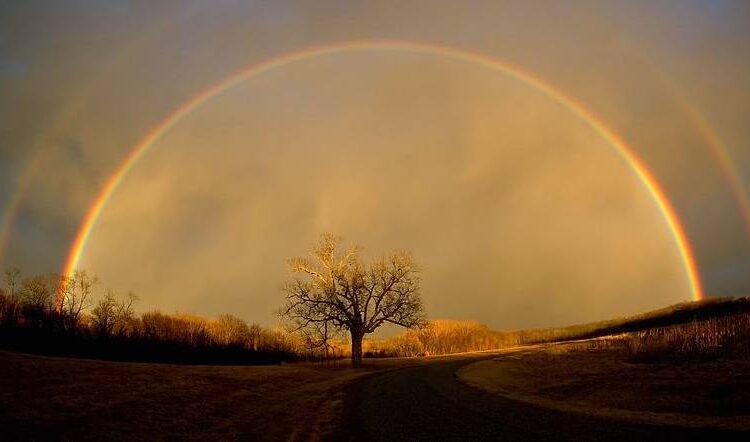
The European Union’s nature restoration law may not be perfect and will touch the lives of millions of people, including farmers, fishers and foresters. But we should not let this become an excuse to give up and kill it next week, as some are suggesting, writes Paul Polman.
Paul Polman is a business leader, campaigner and co-author of ‘Net Positive: how courageous companies thrive by giving more than they take’. He was CEO of Unilever 2009-19.
Next week the European Parliament will hold a make-or-break vote on a new Europe-wide law to protect nature and biodiversity. If passed, EU states will set binding targets to restore degraded ecosystems such as wetlands, rivers and forests. Especially ecosystems that can store carbon and ‘secure the things nature does for free, like cleaning our water and air, pollinating crops, and protecting us from floods.’
With humanity presiding over staggering and accelerating ecological decline, everyone from politicians to farming unions, big business, investors, NGOs and citizens agree that something must be done. Globally, one million animal and plant species now face extinction thanks to human activity. Last year we lost an area of tropical forest the size of a football pitch every five seconds.
Yet despite broad agreement over the need to restore nature, and over 6,000 scientists calling on European politicians to face the facts, the debate in Brussels has become polarised. Opponents of the Nature Restoration Law, led by the president of the European People’s Party (EPP) Manfred Weber, say the reforms go too far and will hurt economic growth. Others, including from the EPP, have courageously spoken out in favour. Next week’s vote looks to be on a knife edge.
We shouldn’t be surprised that this proposal triggers strong feelings. It aims to cover at least 20% of the EU’s land and sea by 2030, and all ecosystems in need of restoration by 2050. The 2030 target is actually less than was agreed at global talks in Montreal last year, where world leaders committed to putting nearly a third of the planet under protection in the same period.
Nevertheless, Europe’s plan will touch the lives of millions, including the farming, fishing and forestry communities on the front line. It will require bold partnerships between growers, traders and retailers, all working with governments to transform Europe’s food and agriculture industries. All at a time when the EU is trying to decarbonise its energy supply and lead the world to net zero. For some industries and communities, the pace of policy change emanating from Brussels feels overwhelming.
But challenging as it is, this is the reality we face. Nature and climate cannot be decoupled and we have to move swiftly on each, or fail on both. Nature is a tremendous ally in fighting global warming: in the last decade the world’s oceans, plants, animals and soils absorbed over half of man-made greenhouse gases. But we’re trashing this ally and our twin nature and climate crises are now exponential, and fast outpacing our patchy and incremental solutions.
In June, the UK experienced yet another hottest month on record. At the same time, unprecedented numbers of dead fish floated down our rivers. How many more extreme weather events or biblical warnings will it take before we see the urgency of our situation? If we keep stalling the regulatory changes our world desperately needs because they are too ambitious, imperfect, or politically difficult, bluntly – we’re all toast.
The Nature Restoration Law is not a perfect law: alone it won’t catapult us to a new economic model which restores and replenishes Europe’s ecosystems. But as any seasoned lawmaker or CEO will tell you, there is no such thing as a perfect proposal, and we should not let this become an excuse to give up. A vote to “pause” the law next week, as some are campaigning for, will be tantamount to killing it and putting Europe-wide progress on restoring nature far out of reach.
Delay is the new denial and we cannot keep endlessly destroying our environment, driving up emissions and kicking the policy can down the road. Far better that Europe’s politicians keep us moving forward and use the current proposal as a launching pad for urgent reform.
Crucially farmers, fishers and foresters must be at the heart of this to ensure a just transition. We should understand why some want greater clarity over who will pay for the shift. They are the diligent stewards of our environment. They put food on our shelves and tables, increasingly in a global economy rocked by floods, droughts, war and inflation. They deserve a clear and firm commitment that improving their livelihoods will be of unwavering importance as we move ahead.
More broadly a clear European framework that gives governments and CEOs certainty over the rules and direction of travel will, in turn, help secure and stimulate the future investment that is needed from both sides. As the costs of nature loss and climate change become ever more real for our governments, we can expect growing political willingness to finance the transition.
In the private sector, the more responsible multinationals are already actively pushing regenerative agriculture in their value chains, including investing billions of euros to finance the transition for farmers and others. As these companies reap the benefits, the business case for such investment will become even clearer.
The immediate challenge is breaking the stalemate in a spirit of pragmatism and collaboration. The proposal on the table is workable and already commands a broad coalition of support among national governments.
Thousands of scientists, organisations representing millions of young people, farming and angling groups, the renewable energy sector and business leaders and investors from over 70 major companies have all come forward to back it.
Next week we have a historic opportunity, for Europe, for humanity and for our shared future on this wonderful planet. Let’s not throw it away.






